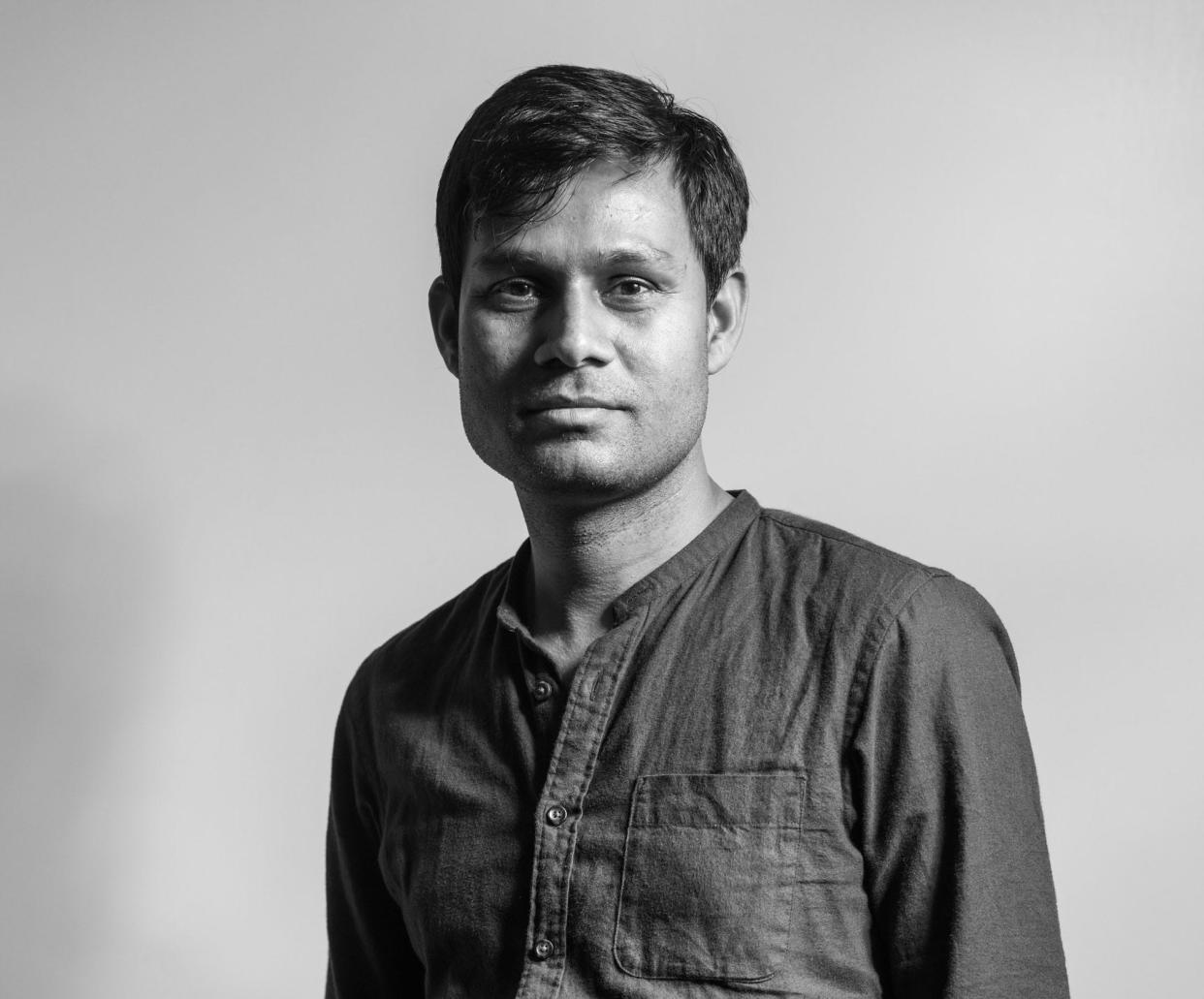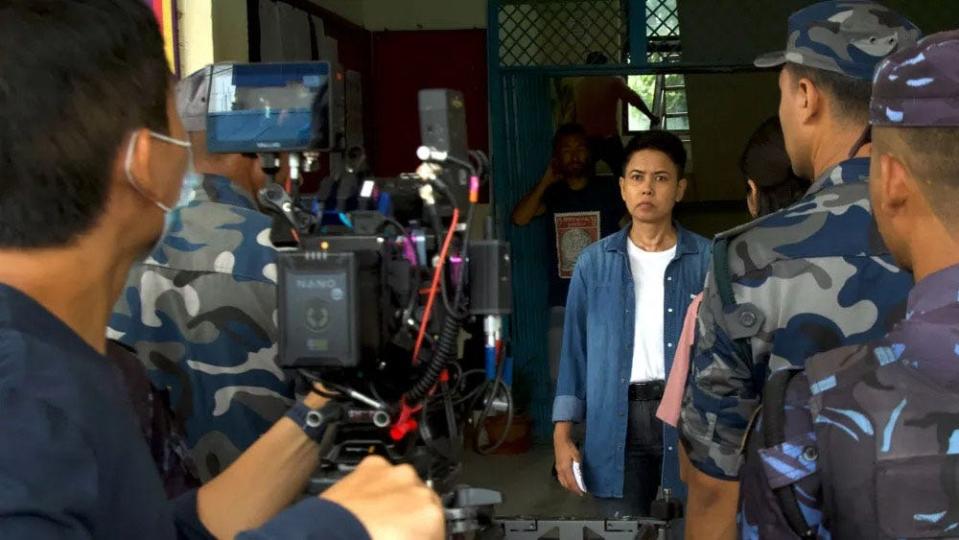Meet the UNCW professor and filmmaker whose movies have drawn international acclaim

If you wanted to meet the man who is perhaps the most successful filmmaker to come out of the South Asian country of Nepal, Wilmington might be the last place you'd look.
And yet, for the past three years, the Nepalese writer, director and producer Deepak Rauniyar, who is the first filmmaker from his country to have his work celebrated on an international stage, has called the Port City home.
Rauniyar's short films and features have played film festivals in Venice, Berlin and Toronto, and his 2016 feature "White Sun," which reckoned with Nepal's devastating 10-year civil war, was Nepal’s entry for Best Foreign Language Film at the 90th Academy Awards in 2018.
"White Sun," which was co-produced by the actor Danny Glover’s Louverture Films, led The New York Times to put Rauniyar on its 2017 list of "9 New Directors You Need to Watch," saying the movie "shows how the lingering disputes of war ripple through lives after guns have ostensibly been laid down."
Earlier this year, when Rauniyar wrapped his third feature, "Rajagunj" (English title: "The Sky is Mine"), which reckons with racial discrimination in Nepal, it drew the attention of such industry publications as Variety.
So how did Rauniyar wind up in Wilmington?
"I came here for a job," Rauniyar said over coffee recently at Luna Caffe on Castle Street, flashing a warm, shy smile. This year is his third in the University of North Carolina Wilmington's Department of Film Studies, where he teaches directing, producing and other classes to both graduate students and undergrads.
When he interviewed for the UNCW job, Rauniyar said, he and his wife, Asha Magrati, an actress and filmmaker who stars in "The Sky Is Mine," were living in New York City, "overwhelmed by COVID" and looking for a change.
Rauniyar grew up in a small town in southern Nepal, albeit one a bit smaller than Wilmington: His town didn't have a movie theater, and he didn't see his first film in a cinema until he was 13.
Still, the idea of returning to a small(er) town appealed to him.
"In a smaller town, people know you, people care about you," he said. "It's not a city where everyone is busy."
During his interview with UNCW, "One thing I felt about here was that, from the very beginning, I felt this human connection," he said. "Sometimes in academia you don't feel that."
Rauniyar's route to becoming a filmmaker was a circuitous one. He started out as a journalist, working for a newspaper where one of his jobs was reviewing films. He then went on to produce radio and television programs for the BBC, and in 2010 co-founded Aadi Production in Kathmandu with his wife. His first feature was "Highway," a bracing slice of life from modern-day Nepal about bus passengers beset with delays as they try to reach Kathmandu.
When "Highway" played the Berlin International Film Festival in 2012, Rauniyar became the first Nepalese filmmaker to have his work shown at a major international festival.
From the start, it was clear he wasn't interested in doing the frothy, Bollywood-style productions popular in Nepal and South Asia. Rather, his films take on weighty topics, like the civil war that raged in Nepal from 1996 to 2006, or, with his new film, the discrimination faced by the 20% of Nepalese who have darker skin.
"Where I grew up, there's a billion-dollar industry that makes creams for people to be lighter," he said. "We grew up with the mentality, thinking that you are not nice. You're not beautiful. So I guess I wanted to kind of address that."

"The Sky Is Mine" was "inspired by the story of me and my wife," Rauniyar said.
Magrati has appeared in two of her husband's features as well as two of his short films, and they are close collaborators. Along with Rauniyar and David Barker, she's credited as co-writer on the film, much of which is drawn from her life. Her husband said she's good at finding details that help improve the writing and dialogue.
They work well together, but "we fight as well," he said with a smile.
He's hoping to finish "The Sky Is Mine" in time to get it into festivals next year. (In a UNCW connection, MFA filmmaking grad Kiersten Houser worked as an assistant director on the film.)
Rauniyar said he has plans to shoot a short film and maybe a feature in Wilmington in the coming years. And while he doesn't think he'll move back to Nepal, he's still very involved with the filmmaking community there. In 2019, he helped start a mentorship program for young Nepalese filmmakers.
That's something "we didn't have when we were growing up," he said. "A lot of them do not have access to" study film abroad, "So we want to create that opportunity for them."
This article originally appeared on Wilmington StarNews: Nepalese filmmaker Deepak Rauniyar finds a home at UNCW in Wilmington

